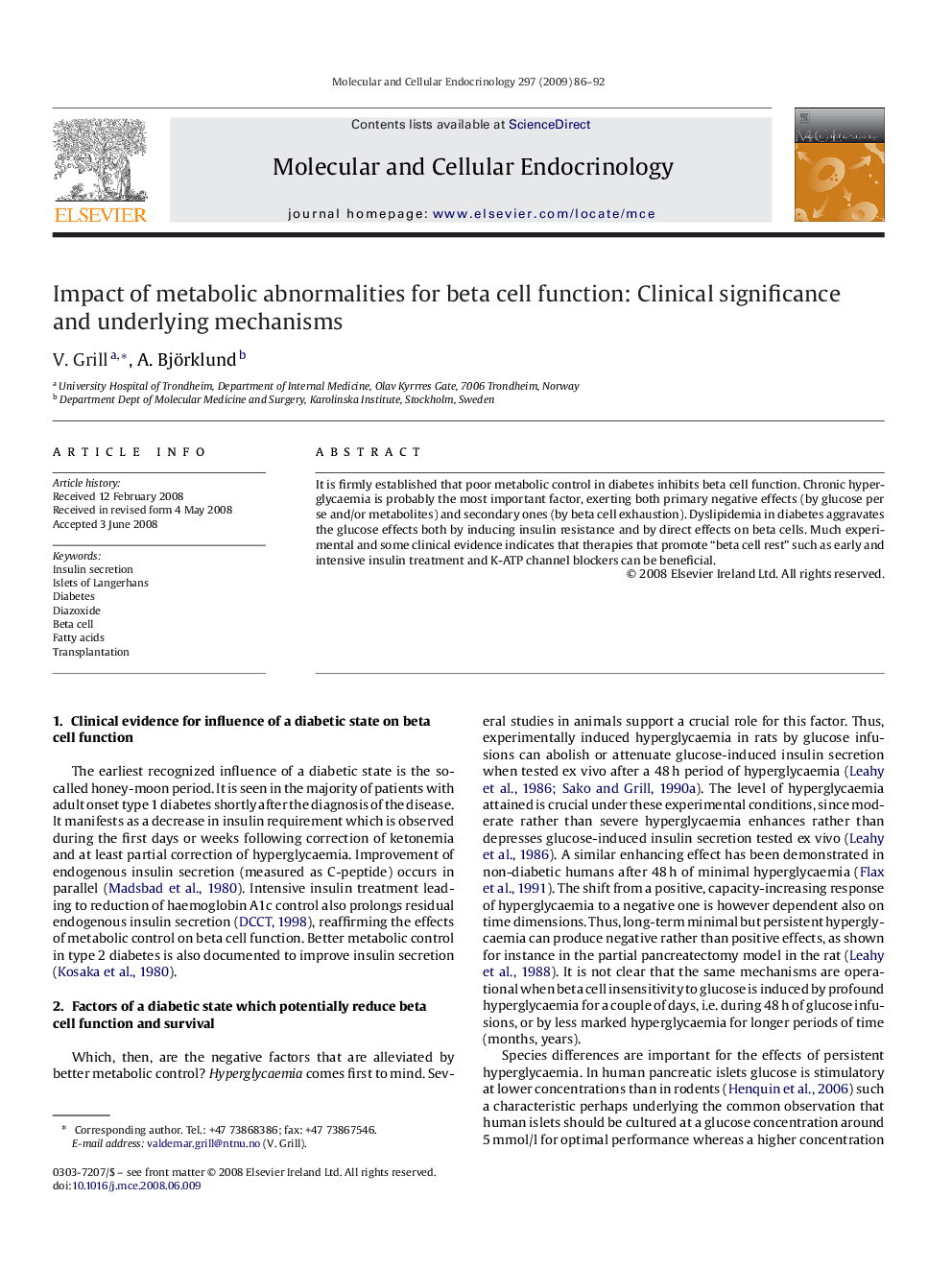| Article ID | Journal | Published Year | Pages | File Type |
|---|---|---|---|---|
| 2197428 | Molecular and Cellular Endocrinology | 2009 | 7 Pages |
Abstract
It is firmly established that poor metabolic control in diabetes inhibits beta cell function. Chronic hyperglycaemia is probably the most important factor, exerting both primary negative effects (by glucose per se and/or metabolites) and secondary ones (by beta cell exhaustion). Dyslipidemia in diabetes aggravates the glucose effects both by inducing insulin resistance and by direct effects on beta cells. Much experimental and some clinical evidence indicates that therapies that promote “beta cell rest” such as early and intensive insulin treatment and K-ATP channel blockers can be beneficial.
Related Topics
Life Sciences
Biochemistry, Genetics and Molecular Biology
Cell Biology
Authors
V. Grill, A. Björklund,
